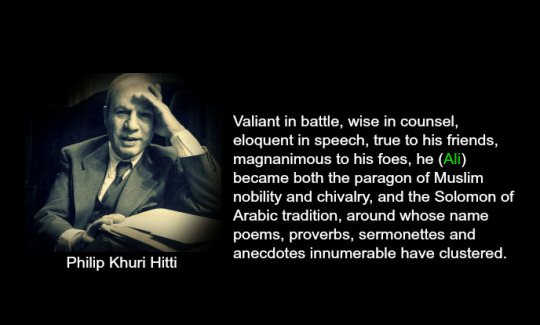#Philip Khuri Hitti
Photo
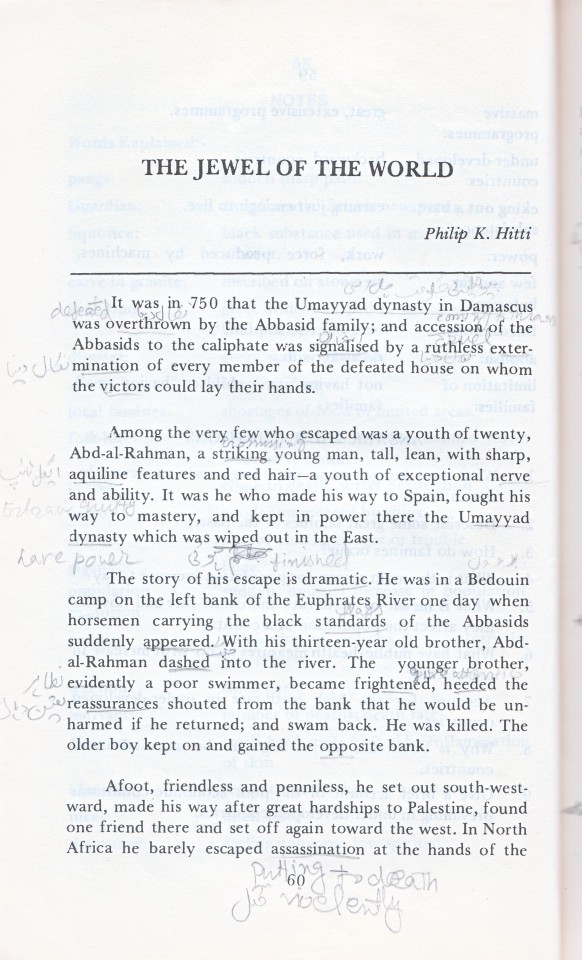
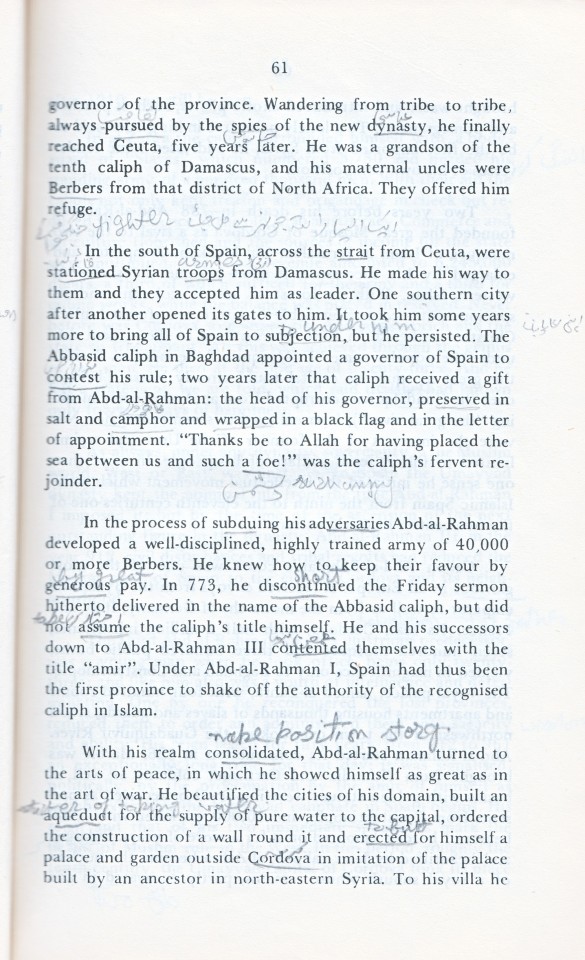
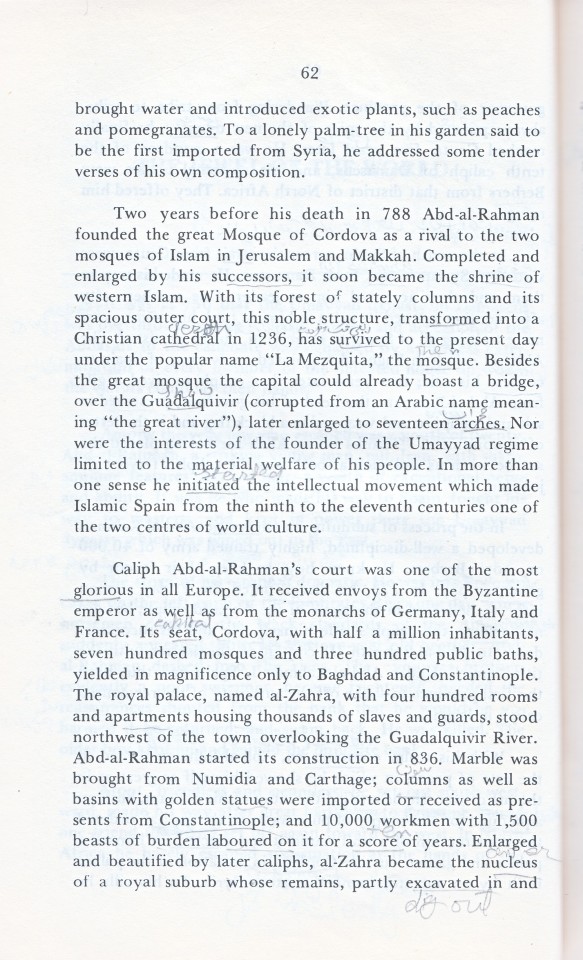

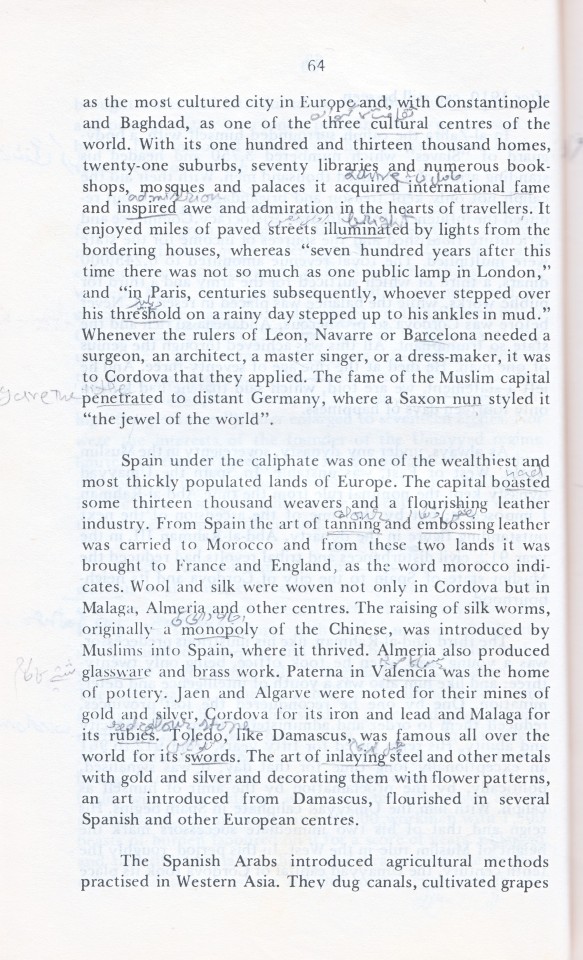
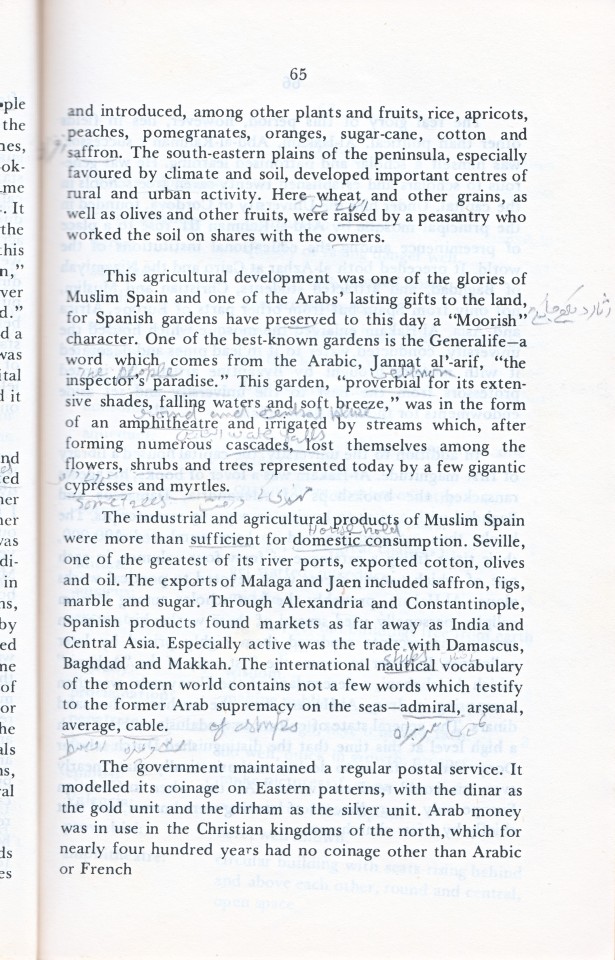

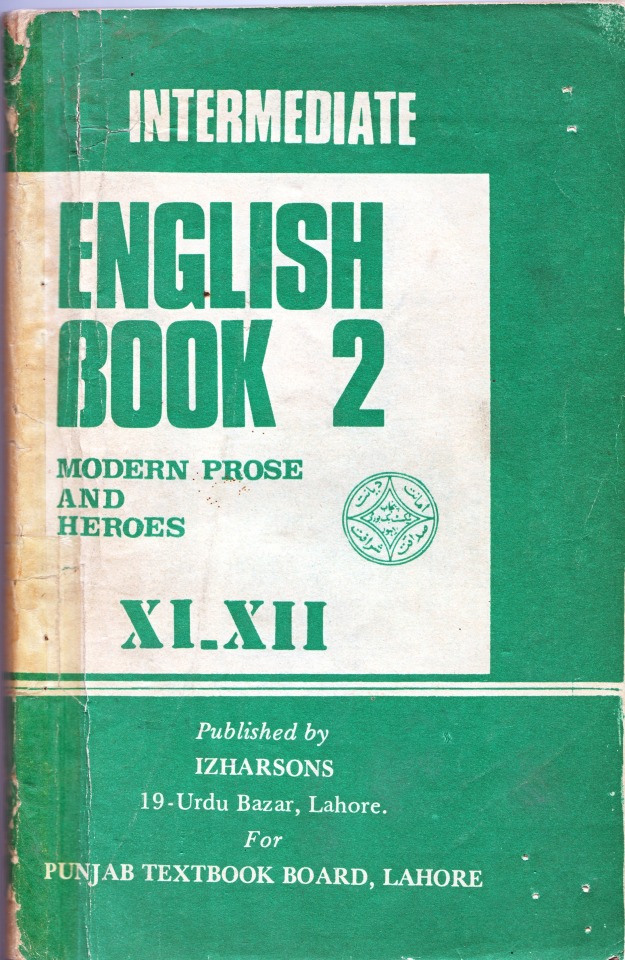
THE JEWEL OF THE WORLD
by Philip K. Hitti
#THE JEWEL OF THE WORLD#Philip K. Hitti#Philip Khuri Hitti#INTERMEDIATE ENGLISH BOOK – II (Modern Proses and Heroes) FOR INTERMEDIATE CLASSES#Published by IZHARSONS 19 - Urdu Bazar Lahore. FOR PUNJAB TEXTBOOK BOARD LAHORE#August 1988#1988#PUNJAB TEXTBOOK BOARD#PUNJAB TEXTBOOK BOARD LAHORE#19 - Urdu Bazar Lahore#Urdu Bazar Lahore#IZHARSONS#Published by IZHARSONS#INTERMEDIATE ENGLISH BOOK – II#Modern Proses and Heroes#FOR INTERMEDIATE CLASSES
0 notes
Text
Growth from Cultural Osmosis
But Europeans were not mere borrowers and imitators. They adopted, adapted, and originated. The measure of energy, inventiveness, and independence which they introduced into the old world enabled them to set the old on new paths and subsequently to create institutions of government and bodies of science, philosophy, and art which far excelled what had preceded them. #27 (p.5)
Hitti, P. K. (Philip Khuri). (1961). The Near East in history: a 5000 year story. Princeton, N.J.: Van Nostrand.
3 notes
·
View notes
Link
1 note
·
View note
Text
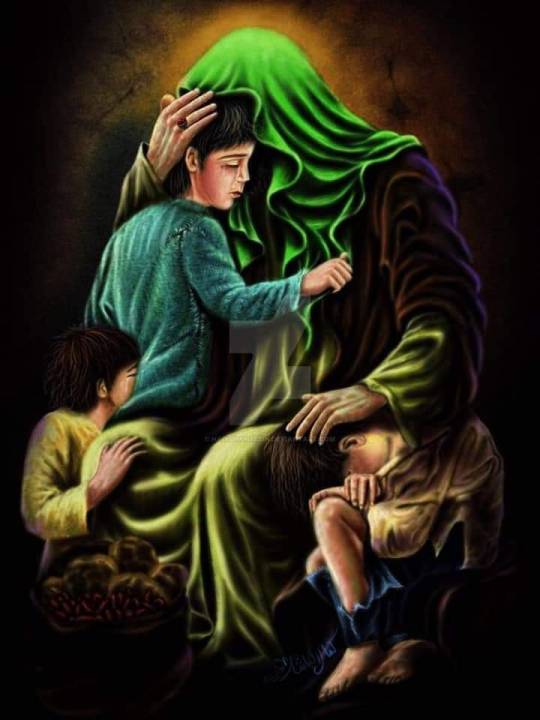
🍃🕊🍃 What Non-Muslims Say About Imam Ali (as) 🍃🕊🍃
The First Successor of the Holy Prophet Muhammad (S)
God thus makes clear his signs to you that you may understand
(Holy Quran 2:242)
Imam 'Ali bin Abi Talib (as) was the successor to Prophet Muhammad (S) This is a collection of short quotations about him from a wide variety of notables belonging to other faiths, including academics, writers, philosophers, poets, politicians, and activists.
🍃 Thomas Carlyle (1795-1881) 🍃
Scottish historian, critic, and sociological writer.
• “As for this young Ali, one cannot but like him. A noble-minded creature, as he shows himself, now and always afterwards; full of affection, of fiery daring. Something chivalrous in him; brave as a lion; yet with a grace, a truth and affection worthy of Christian knighthood.”
(On Heroes, Hero-Worship, And The Heroic In History, 1841, Lecture 2: The Hero as Prophet. Mahomet: Islam., May 8, 1840)
🍃 Edward Gibbon (1737-1794) 🍃
Considered the greatest British historian of his time.
• "The zeal and virtue of Ali were never outstripped by any recent proselyte. He united the qualifications of a poet, a soldier, and a saint; his wisdom still breathes in a collection of moral and religious sayings; and every antagonist, in the combats of the tongue or of the sword, was subdued by his eloquence and valour. From the first hour of his mission to the last rites of his funeral, the apostle was never forsaken by a generous friend, whom he delighted to name his brother, his vicegerent, and the faithful Aaron of a second Moses."
(The Decline and Fall of the Roman Empire, London, 1911, volume 5, pp. 381-2)
🍃 Philip Khuri Hitti (1886-1978) 🍃
Professor of Semitic Languages at Princeton University
• “Valiant in battle, wise in counsel, eloquent in speech, true to his friends, magnanimous to his foes, he became both the paragon of Muslim nobility and chivalry (futuwah) and the Solomon of Arabic tradition, around whose name poems, proverbs, sermonettes and anecdotes innumerable have clustered.”
(History of the Arabs, London, 1964, p. 183)
🍃Sir William Muir (1819 - 1905) 🍃
Scottish scholar and statesman. Held the post of Foreign Secretary to the Indian government as well as Lieutenant Governor of the Northwestern Provinces.
• “Endowed with a clear intellect, warm in affection, and confiding in friendship, he was from the boyhood devoted heart and soul to the Prophet. Simple, quiet, and unambitious, when in after days he obtained the rule of half of the Moslem world, it was rather thrust upon him than sought.”
(The Life of Mahomet, London, 1877, p. 250)
🍃 Dr. Henry Stubbe (1632-1676) 🍃Classicist, polemicist, physician, and philosopher.
• “He had a contempt of the world, its glory and pomp, he feared God much, gave many alms, was just in all his actions, humble and affable; of an exceeding quick wit and of an ingenuity that was not common, he was exceedingly learned, not in those sciences that terminate in speculations but those which extend to practice.”
(An Account of the Rise and Progress of Mahometanism, 1705, p. 83)
🍃 Gerald de Gaury (1897 - 1984) 🍃
A distinguished soldier and diplomat.
• “He had been wise in counsel and brave in battle, true to his friends and magnanimous to his foes. He was to be for ever the paragon of Muslim nobility and chivalry.”
(Rulers of Mecca, London, 1951, p. 49)
🍃 Wilferd Madelung 🍃
Professor of Arabic at Oxford University
• "In face of the fake Umayyad claim to legitimate sovereignty in Islam as God's Vicegerents on earth, and in view of Umayyad treachery, arbitrary and divisive government, and vindictive retribution, they came to appreciate his honesty, his unbending devotion to the reign of Islam, his deep personal loyalties, his equal treatment of all his supporters, and his generosity in forgiving his defeated enemies."
(The succession to Muhammad: a study of the early caliphate, Cambridge, 1997, pp. 309-310)
🍃 Charles Mills (1788 - 1826) 🍃
Leading historical writer of his time.
• “As the chief of the family of Hashem and as the cousin and son-in-law of him whom the Arabians respected …, it is apparently wonderful that Ali was not raised to the Caliphate immediately on the death of Mohammad. To the advantages of his birth and marriage was added the friendship of the Prophet. The son of Abu Talib was one of the first converts to Islamism and Mohammad’s favourite appellation of his was the Aaron of a second Moses. His talents as an orator, and his intrepidity as a warrior, were grateful to a nation in whose judgement courage was virtue and eloquence was wisdom.”
(An history of Muhammedanism, London, 1818, p. 89)
🍃 Simon Ockley (1678-1720) 🍃
Professor of Arabic at the University of Cambridge.
• “One thing particularly deserving to be noticed is that his mother was delivered of him at Mecca, in the very temple itself; which never happened to any one else.”
(History of the Saracens, London, 1894, p. 331)
🍃 Washington Irving (1783-1859) 🍃
Well-known as the “first American man of letters”.
• "He was of the noblest branch of the noble race of Koreish. He possessed the three qualities most prized by Arabs: courage, eloquence, and munificence. His intrepid spirit had gained him from the prophet the appellation of The Lion of God, specimens of his eloquence remain in some verses and sayings preserved among the Arabs; and his munificence was manifested in sharing among others, every Friday, what remained in the treasury. Of his magnanimity, we have given repeated instances; his noble scorn of everything false and mean, and the absence in his conduct of everything like selfish intrigue."
(Lives of the Successors of Mahomet, London, 1850, p. 165)
• "He was one of the last and worthiest of the primitive Moslems, who imbibed his religious enthusiasm from companionship with the Prophet himself, and followed to the last the simplicity of his example. He is honourably spoken of as the first Caliph who accorded some protection to Belles-Lettres. He indulged in the poetic vein himself, and many of his maxims and proverbs are preserved, and have been translated in various languages. His signet bore this inscription: 'The kingdom belongs to God'. One of his sayings shows the little value he set upon the transitory glories of this world, 'Life is but the shadow of a cloud - the dream of a sleeper'."
(Lives of the Successors of Mahomet, London, 1850, pp. 187-8)
🍃Robert Durey Osborn (1835-1889)🍃
Major of the Bengal Staff Corps.
• “With him perished the truest hearted and best Moslem of whom Mohammadan history had preserved the remembrance.”
(Islam Under the Arabs, 1876, p. 120)
0 notes
Text
🍃🕊🍃 What Non-Muslims Say About Imam Ali (as) 🍃🕊🍃
The First Successor of the Holy Prophet Muhammad (S)
God thus makes clear his signs to you that you may understand
(Holy Quran 2:242)
Imam 'Ali bin Abi Talib (as) was the successor to Prophet Muhammad (S) This is a collection of short quotations about him from a wide variety of notables belonging to other faiths, including academics, writers, philosophers, poets, politicians, and activists.
🍃 Thomas Carlyle (1795-1881) 🍃
Scottish historian, critic, and sociological writer.
• “As for this young Ali, one cannot but like him. A noble-minded creature, as he shows himself, now and always afterwards; full of affection, of fiery daring. Something chivalrous in him; brave as a lion; yet with a grace, a truth and affection worthy of Christian knighthood.”
(On Heroes, Hero-Worship, And The Heroic In History, 1841, Lecture 2: The Hero as Prophet. Mahomet: Islam., May 8, 1840)
🍃 Edward Gibbon (1737-1794) 🍃
Considered the greatest British historian of his time.
• "The zeal and virtue of Ali were never outstripped by any recent proselyte. He united the qualifications of a poet, a soldier, and a saint; his wisdom still breathes in a collection of moral and religious sayings; and every antagonist, in the combats of the tongue or of the sword, was subdued by his eloquence and valour. From the first hour of his mission to the last rites of his funeral, the apostle was never forsaken by a generous friend, whom he delighted to name his brother, his vicegerent, and the faithful Aaron of a second Moses."
(The Decline and Fall of the Roman Empire, London, 1911, volume 5, pp. 381-2)
🍃 Philip Khuri Hitti (1886-1978) 🍃
Professor of Semitic Languages at Princeton University
• “Valiant in battle, wise in counsel, eloquent in speech, true to his friends, magnanimous to his foes, he became both the paragon of Muslim nobility and chivalry (futuwah) and the Solomon of Arabic tradition, around whose name poems, proverbs, sermonettes and anecdotes innumerable have clustered.”
(History of the Arabs, London, 1964, p. 183)
🍃Sir William Muir (1819 - 1905) 🍃
Scottish scholar and statesman. Held the post of Foreign Secretary to the Indian government as well as Lieutenant Governor of the Northwestern Provinces.
• “Endowed with a clear intellect, warm in affection, and confiding in friendship, he was from the boyhood devoted heart and soul to the Prophet. Simple, quiet, and unambitious, when in after days he obtained the rule of half of the Moslem world, it was rather thrust upon him than sought.”
(The Life of Mahomet, London, 1877, p. 250)
🍃 Dr. Henry Stubbe (1632-1676) 🍃Classicist, polemicist, physician, and philosopher.
• “He had a contempt of the world, its glory and pomp, he feared God much, gave many alms, was just in all his actions, humble and affable; of an exceeding quick wit and of an ingenuity that was not common, he was exceedingly learned, not in those sciences that terminate in speculations but those which extend to practice.”
(An Account of the Rise and Progress of Mahometanism, 1705, p. 83)
🍃 Gerald de Gaury (1897 - 1984) 🍃
A distinguished soldier and diplomat.
• “He had been wise in counsel and brave in battle, true to his friends and magnanimous to his foes. He was to be for ever the paragon of Muslim nobility and chivalry.”
(Rulers of Mecca, London, 1951, p. 49)
🍃 Wilferd Madelung 🍃
Professor of Arabic at Oxford University
• "In face of the fake Umayyad claim to legitimate sovereignty in Islam as God's Vicegerents on earth, and in view of Umayyad treachery, arbitrary and divisive government, and vindictive retribution, they came to appreciate his honesty, his unbending devotion to the reign of Islam, his deep personal loyalties, his equal treatment of all his supporters, and his generosity in forgiving his defeated enemies."
(The succession to Muhammad: a study of the early caliphate, Cambridge, 1997, pp. 309-310)
🍃 Charles Mills (1788 - 1826) 🍃
Leading historical writer of his time.
• “As the chief of the family of Hashem and as the cousin and son-in-law of him whom the Arabians respected …, it is apparently wonderful that Ali was not raised to the Caliphate immediately on the death of Mohammad. To the advantages of his birth and marriage was added the friendship of the Prophet. The son of Abu Talib was one of the first converts to Islamism and Mohammad’s favourite appellation of his was the Aaron of a second Moses. His talents as an orator, and his intrepidity as a warrior, were grateful to a nation in whose judgement courage was virtue and eloquence was wisdom.”
(An history of Muhammedanism, London, 1818, p. 89)
🍃 Simon Ockley (1678-1720) 🍃
Professor of Arabic at the University of Cambridge.
• “One thing particularly deserving to be noticed is that his mother was delivered of him at Mecca, in the very temple itself; which never happened to any one else.”
(History of the Saracens, London, 1894, p. 331)
🍃 Washington Irving (1783-1859) 🍃
Well-known as the “first American man of letters”.
• "He was of the noblest branch of the noble race of Koreish. He possessed the three qualities most prized by Arabs: courage, eloquence, and munificence. His intrepid spirit had gained him from the prophet the appellation of The Lion of God, specimens of his eloquence remain in some verses and sayings preserved among the Arabs; and his munificence was manifested in sharing among others, every Friday, what remained in the treasury. Of his magnanimity, we have given repeated instances; his noble scorn of everything false and mean, and the absence in his conduct of everything like selfish intrigue."
(Lives of the Successors of Mahomet, London, 1850, p. 165)
• "He was one of the last and worthiest of the primitive Moslems, who imbibed his religious enthusiasm from companionship with the Prophet himself, and followed to the last the simplicity of his example. He is honourably spoken of as the first Caliph who accorded some protection to Belles-Lettres. He indulged in the poetic vein himself, and many of his maxims and proverbs are preserved, and have been translated in various languages. His signet bore this inscription: 'The kingdom belongs to God'. One of his sayings shows the little value he set upon the transitory glories of this world, 'Life is but the shadow of a cloud - the dream of a sleeper'."
(Lives of the Successors of Mahomet, London, 1850, pp. 187-8)
🍃Robert Durey Osborn (1835-1889)🍃
Major of the Bengal Staff Corps.
• “With him perished the truest hearted and best Moslem of whom Mohammadan history had preserved the remembrance.”
(Islam Under the Arabs, 1876, p. 120)

0 notes
Quote
Philip Khuri Hitti (Arabic: فيليب خوري حتي), (Shimlan 22 June 1886 - Princeton 24 December 1978) was a Lebanese American professor and scholar at Princeton and Harvard University, and authority on Arab and Middle Eastern history, Islam, and Semitic languages. He almost single-handedly created the discipline of Arabic Studies in the United States.
0 notes
Text
It was in 750, as we have noted, that the Umayyad dynasty in Damascus was overthrown by the Abbasid family ; and as we have also seen, the accession of the Abbasids to the caliphate was signalized by a ruthless extermination of every member of the defeated house on whom the victors could lay their hands.
Among the very few who escaped was a youth of twenty, Abd-al-Rahman, a striking young man, tall, lean, with sharp, aquiline features and red hair — a youth of exceptional nerve and ability. It was he who made his way to Spain, fought his way to mastery, and kept in power there the Umayyad dynasty which was wiped out in the east.
The story of his escape is dramatic. He was in a Bedouin camp on the left bank of the Euphrates River one day, when horsemen carrying the black standards of the Abbasids suddenly appeared. With his thirteen-year-old brother, Abd-al-Rahman dashed into the river. The younger brother, evidently a poor swimmer, became frightened, heeded the reassurances shouted from the bank that he would be unharmed if he returned, and swam back. He was killed. The older boy kept on and gained the opposite bank.
Afoot, friendless and penniless, he set out south-westward, made his way after great hardships to Palestine, found one friend there, and set off again toward the west. In North Africa he barely escaped assassination at the hands of the governor of the province. Wandering from tribe to tribe, always pursued by the spies of the new dynasty, he finally reached Ceuta, five years later. He was a grandson of the tenth caliph of Damascus, and his maternal uncles were Berbers from that district of North Africa. They offered him refuge.
In the south of Spain, across the strait from Ceuta, were stationed Syrian troops from Damascus. He made his way to them and they accepted him as leader. One southern city after another opened its gates to him. It took him some years more to bring all of Spain to subjection, but he persisted. The Abbasid caliph in Baghdad appointed a governor of Spain to contest his rule ; two years later that caliph received a gift from Abd-al-Rahman : the head of his governor, preserved in salt and camphor and wrapped in a black flag and in the diploma of appointment. " Thanks be to Allah for having placed the sea between us and such a foe ! " was the caliph's fervent rejoinder. In a passage at arms which has been immortalized in the literature of the West, Charlemagne, king of the Franks, also learned the quality of this redoubtable adversary. Considered an ally of the Abbasid caliph and a natural enemy of the new amir, or sultan, as Abd-al-Rahman called himself, Charlemagne had sent troops in 778 through the north-eastern Spanish marches as far as Saragossa, but had to withdraw when that city closed its gates in his face and domestic enemies threatened his authority at home. On its via dolorosa of retreat through the defiles of the Pyrenees, the Frankish army was attacked in its rear by Basques and other mountaineers and suffered disastrous losses in men and baggage. Among the leaders who fell was Roland. His heroic defence has been immortalized in the Chanson de Roland, not only a master- piece of French literature but one of the most striking epics of medieval times.
In the process of subduing his adversaries Abd-al-Rahman developed a well-disciplined, highly trained army of 40,000 or more mercenary Berbers. He knew how to keep their favour by generous pay. In 757 he discontinued the Friday sermon hitherto delivered in the name of the Abbasid caliph, but did not assume the caliphal tide himself. He and his successors down to Abd-al-Rahman III contented themselves with the title " amir ", though ruling independently. Under Abd-al- Rahman I Spain had thus been the first province to shake off the authority of the recognized caliph in Islam.
With his realm consolidated and temporarily pacified, Abd-al-Rahman turned to the arts of peace, in which he showed himself as great as in the art of war. He beautified the cities of his domain, built an aqueduct for the supply of pure water to the capital, initiated the construction of a wall round it and erected for himself a palace and garden outside Cordova in imitation of the palace built by an ancestor in north-eastern Syria. To his villa he brought water and introduced exotic plants, such as peaches and pomegranates. To a lonely palm tree in his garden, said to be the first imported from Syria, he addressed some tender and nostalgic verses of his own composition.
Two years before his death in 788 Abd-al-Rahman founded the great Mosque of Cordova as a rival to the two sanctuaries of Islam in Jerusalem and Mecca. Completed and enlarged by his successors, it soon became the shrine of Western Islam. With its forest of stately columns and its spacious outer court, this monumental structure, trans- formed into a Christian cathedral in 1236, has survived to the present day under the popular name " La Mezquita ", the mosque. Besides the great mosque the capital could already boast a bridge, over the Guadalquivir (corrupted from an Arabic name meaning " the great river "), later enlarged to seventeen arches. Nor were the interests of the founder of the Umayyad regime limited to the material welfare of his people. In various ways he diligently strove to fashion into one nation Arabians, Syrians, Berbers, Numidians, Hispano-Arabs and Goths — a rather hopeless task ; and in more than one sense he initiated the intel- lectual movement which made Islamic Spain from the ninth to the eleventh centuries one of the two centres of world culture.
Caliph Abd-al-Rahman's court was one of the most glamorous in all Europe. Accredited to it were envoys from the Byzantine emperor as well as from the monarchs of Germany, Italy and France. Its seat, Cordova, with half a million inhabitants, seven hundred mosques and three hundred public baths, yielded in magnificence only to Baghdad and Constantinople. The royal palace, with four hundred rooms and apartments housing thousands of slaves and guards, stood north-west of the town on one of the spurs of the Sierra Morena overlooking the Guadalquivir River. Abd-al-Rahman III started its construction in 936 with money left, so the legend goes, by one of his concubines who willed that the fund be used for ransoming captives in Christian hands ; but since none were found he acted on the suggestion of his other concubine, al-Zahra, " she with the bright face ", and erected this palatial mansion which he named after her. Marble was brought from Numidia and Carthage ; columns as well as basins with golden statues were imported or received as presents from Constantinople ; and 10,000 workmen with 1,500 beasts of burden laboured on it for a score of years. Enlarged and embellished by later caliphs, al-Zahra became the nucleus of a royal suburb whose remains, pardy excavated in and after 1910, can still be seen.
In al-Zahra the caliph surrounded himself with a body- guard of " SJavs " which numbered 3,750 and beaded his standing army of a hundred thousand men. At first applied to slaves and prisoners captured by Germans and others from among the Slavonic tribes and sold to the Arabs, the name Slav was later given to all purchased foreigners : Franks, Galicians, Lombards and the like, who as a rule were secured young and Arabicized. With the aid of these "Janissaries " or " Mamluks " of Spain the caliph not only kept treason and brigandage in check but reduced the influence of the old Arab aristocracy. Commerce and agri- culture flourished and the sources of income for the state were multiplied. The royal revenue amounted to 6,245,000 dinars, a third of which sufficed for the army and a third for public works, while the balance was placed in reserve. Never before was Cordova so prosperous, Andalusia so rich and the state so triumphant. All this was achieved through the genius of one man. He died at the ripe age of seventy- three. And he left a statement, we are told, which said that he had known only fourteen days of happiness.
As always, under any dynasty, sovereignty in the Moslem world, West or East, was unstable and precarious. In Spain the Umayyad dynasty kept the nominal rule from the time Abd-al-Rahman I imposed it ; but by the time of the accession of the next outstanding figure in the dynasty, Abd-al-Rahman III, in the year 912, civil disturbances, tribal revolts and general political incompetence on the part of the amirs had reduced the organized Moslem state of Spain to the city of Cordova and its environs.
This third Abd-al-Rahman, like his illustrious pre- decessor, was a young man when he took office, being only twenty-three ; and like him also was a youth of intelligence and determination. One by one he reconquered the lost provinces, reduced them to order, and administered them with sagacity and ability. His reign lasted for fifty years, from 912 to 961, an exceptionally long time for that day ; it was signalized, politically, by the proclamation by the amir of himself as caliph. With him the Umayyad caliphate in Spain begins. His reign, and that of his two immediate successors, mark the height of Moslem rule in the West. In this period, roughly the tenth century, the Umayyad capital of Cordova took its place as the most cultured city in Europe and, with Constantinople and Baghdad, as one of the three cultural centres of the world. With its one hundred and thirteen thousand homes, twenty-one suburbs, seventy libraries and numerous bookshops, mosques and palaces, it acquired international fame and inspired awe and admira- tion in the hearts of travellers. It enjoyed miles of paved streets illuminated by lights from the bordering houses, whereas " seven hundred years after this time there was not so much as one public lamp in London ", and " in Paris, centuries subsequently, whoever stepped over his threshold on a rainy day stepped up to his ankles in mud ".
The Arab attitude toward the Nordic barbarians found expression in the words of the learned Toledan judge Said, who thought that " because the sun does not shed its rays directly over their heads, their climate is cold and atmo- sphere clouded. Consequently their temperaments have become cold and their humours rude, while their bodies have grown large, their complexion light and their hair long. They lack withal sharpness of wit and penetration of intellect, while stupidity and folly prevail among them." Whenever the rulers of Leon, Navarre or Barcelona needed a surgeon, an architect, a master singer, or a dressmaker, it was to Cordova that they applied. The fame of the Moslem capital penetrated distant Germany, where a Saxon nun styled it " the jewel of the world".
Spain under the caliphate was one of the wealthiest and most thickly populated lands of Europe. The capital boasted some thirteen thousand weavers and a flourishing leather industry. From Spain the art of tanning and embossing leather was carried to Morocco and from these two lands it was brought to France and England, as the terms cordovan, cordwainer and morocco indicate. Wool and silk were woven not only in Cordova but in Malaga, Almeria and other centres. The raising of silkworms, originally a mono- poly of the Chinese, was introduced by Moslems into Spain, where it thrived. Almeria also produced glassware and brasswork. Paterna in Valencia was the home of pottery. Jaen and Algarve were noted for their mines of gold and silver, Cordova for its iron and lead, and Malaga for its rubies. Toledo, like Damascus, was famous all over the world for its swords. The art of inlaying steel and other metals with gold and silver and decorating them with flower patterns, which was introduced from Damascus, flourished in several Spanish and other European centres and left a linguistic heritage in such words as damascene and damaskeen.
The Spanish Arabs introduced agricultural methods practised in Western Asia. They dug canals, cultivated grapes and introduced, among other plants and fruits, rice, apricots, peaches, pomegranates, oranges, sugar cane, cotton and saffron. The south-eastern plains of the peninsula, especially favoured by climate and soil, developed important centres of rural and urban activity. Here wheat and other grains, as well as olives and sundry fruits, were raised by a peasantry who worked the soil on shares with the owners.
This agricultural development was one of the glories of Moslem Spain and one of the Arabs' lasting gifts to the land, for Spanish gardens have preserved to this day a " Moorish " character. One of the best-known gardens is the Generalife — a word which comes from the Arabic jannat al-arif, " the inspector's paradise " — a monument of the late thirteenth century whose villa was one of the out- lying buildings of the Alhambra. This garden, " proverbial for its extensive shades, falling waters and soft breeze ", was terraced in the form of an amphitheatre and irrigated by streams which, after forming numerous cascades, lost them- selves among the flowers, shrubs and trees represented today by a few gigantic cypresses and myrtles.
The industrial and agricultural products of Moslem Spain were more than sufficient for domestic consumption. Seville, one of the greatest of its river ports, exported cotton, olives and oil ; it imported cloth and slaves from Egypt and singing girls from Europe and Asia. The exports of Malaga and Jaen included saffron, figs, marble and sugar. Through Alexandria and Constantinople Spanish products found markets as far away as India and Central Asia. Especially active was the trade with Damascus, Baghdad and Mecca. The international nautical vocabulary of the modern world contains not a few words which testify to the former Arab supremacy on the seas — admiral, arsenal, average, cable, shallop.
The government maintained a regular postal service. It modelled its coinage on Eastern patterns, with the dinar as the gold unit and the dirham as the silver unit. Arab money was in use in the Christian kingdoms of the north, which for nearly four hundred years had no coinage other than Arabic or French.
The real glory of this period, however, lies in fields other than political. Al-Hakam, Abd-al-Rahman Ill's successor, was himself a scholar and patronized learning. He granted munificent bounties to scholars and established twenty-seven free schools in the capital. Under him the University of Cordova, founded in the principal mosque by Abd-al- Rahman III, rose to a place of pre-eminence among the educational institutions of the world. It preceded both al-Azhar of Cairo and the Nizamiyah of Baghdad, and attracted students, Christian and Moslem, not only from Spain but from other parts of Europe, Africa and Asia. Al-Hakam enlarged the mosque which housed the university, conducted water to it in lead pipes and decorated it with mosaics brought by Byzantine artists. He invited professors from the East to the university and set aside endowments for their salaries.
In addition to the university the capital housed a library of first magnitude. Al-Hakam was a bibliophile ; his agents ransacked the bookshops of Alexandria, Damascus and Baghdad with a view to buying or copying manuscripts. The books thus gathered are said to have numbered 400,000, their titles filling a catalogue of forty-four volumes, in each one of which twenty sheets were devoted to poetical works alone. Al-Hakam, probably the best scholar among Moslem caliphs, personally used several of these works ; his marginal notes on certain manuscripts rendered them highly prized by later collectors. In order to secure the first copy of the Aghani, which al-Isbahani, a descendant of the Umayyads, was then composing in Iraq, al-Hakam sent the author a thousand dinars. The general state of culture in Andalusia reached such a high level at this time that the distinguished Dutch scholar Dozy went so far as to declare enthusiastic- ally that " nearly everyone could read and write " — all this when in Christian Europe only the rudiments of learning were known, and that chiefly by a few churchmen.
The Jewel of The World by Philip K. Hitti
#The Jewel of The World by Philip K. Hitti#The Jewel of The World#Philip K. Hitti#Philip Khuri Hitti
0 notes
Quote
That ancient Near East culture formed the background of the early European civilization was a fact barely realized a hundred years ago . Nor was the debt that Greece and Rome owed this area fully appreciated until recently, a debt that does not necessarily make the grandeur that was Greece less grand , or the greatness that was Rome less great .
#26 (p.4)
Hitti, P. K. (Philip Khuri). (1961). The Near East in history: a 5000 year story. Princeton, N.J.: Van Nostrand.
1 note
·
View note
Text
Through migration , invasion , or cultural osmosis these remarkable accomplishments eventually found their way into the Eastern Mediterranean and the Aegean islands and thence into the European mainland where they provided a prelude to the classical civilization of Greece and Rome , parent to our civilization. After all , Europe is but a peninsular projection of Western Asia . The ancestor of the wheat and barley cultivated in early Europe seems to have been the wild cereals that still grow in north Syria , al - Biqa ' of Lebanon and Palestine. The domesticated sheep of Europe have evidently descended from the animal that once roamed wild on the plateaus extending from Anatolia to Iran . Crete in the Mediterranean and Mycenae in southern Greece served as the main stepping stones ; Anatolia , Phoenicia , and Egypt provided the bridges . In its metallurgy Crete followed the Egyptian and north Syrian tradition . Similarity marks certain of the ceramics of Western Asia and Eastern Europe . That ancient Near East culture formed the background of the early European civilization was a fact barely realized a hundred years ago .
#26 (p.4)
Hitti, P. K. (Philip Khuri). (1961). The Near East in history: a 5000 year story. Princeton, N.J.: Van Nostrand.
https://catalog.hathitrust.org/Record/001241097/Cite
1 note
·
View note
Text
Hitti, P. K. (Philip Khuri). (1961). The Near East in history: a 5000 year story. Princeton, N.J.: Van Nostrand. https://catalog.hathitrust.org/Record/001241097/Cite…
Hathitrust says this book is in the public domain.
0 notes
